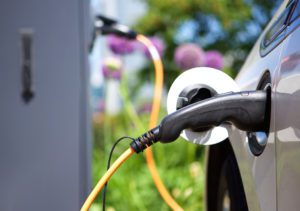
The law amending the law on automobile roads regarding the audit of road safety will open access to better financing of road construction by international financial institution (IFIs) for Ukraine, Senior Sector Engineer of the European Investment Bank (EIB) Per Mathiasen said at a press conference devoted to the results of the EIB Implementation Support to the Ukraine Urban Road Safety Project in Kyiv on Tuesday.
The European Investment Bank, the World Bank, the European Bank for Reconstruction and Development, all of them stress the importance of road safety, he said.
Mathiasen said that Ukraine needed to change the construction of roads for the safety of road users.
The new law will ensure that safety will become an integral part of the design and planning of new roads, he said.
In addition, according to Mathiasen, the law will make new roads safe and accessible for everyone: cars, cyclists and public transport.
In turn, Deputy Infrastructure Minister of Ukraine Natalia Forsiuk recalled that the government has set two key goals in the field of road infrastructure: “reducing travel time by 10% and reducing the number of traffic accidents by 30%.”
“That is, traffic safety is the only immediate priority of the government [in this area],” she said.
The main priority of the EIB Implementation Support to the Ukraine Urban Road Safety Project, which is funded by the Eastern Partnership Technical Assistance Trust Fund and implemented by Egis Ukraine, is the development of the law of Ukraine on automobile roads regarding the audit of road safety, preparation of technical documentation and boosting the capacity necessary to implement the road infrastructure safety management procedures and to promote the adoption of the law and its enforcement.
In order to implement this project, on October 17, 2019, the Verkhovna Rada of Ukraine adopted the law amending certain legislative acts of Ukraine on road safety management. The law contains most of the provisions of EU Directive 2008/96/EC on road infrastructure safety management, which is a version of the EU law on road infrastructure safety management procedures.
As reported, acting head of the State Automobile Roads Authority of Ukraine (Ukravtodor) Slawomir Nowak said that EBRD and EIB are ready to provide Ukraine with a targeted loan in the amount of EUR 900 million for the development of the road industry in 2020.
The level of road accidents in Ukraine is much higher than in EU countries.

President of Ukraine Volodymyr Zelensky has signed a bill No. 54-IX “On amendments into some legislative acts of Ukraine on the certain issues of implementation of the overall weight control,” which was adopted by the Verkhovna Rada on September 11, 2019, into law. “The document is meant to prevent premature destruction of the roads by overloaded vehicles, to reduce the cost of budget funds for their restoration, as well as to increase the level of road safety. It makes amendments to the Code of Ukraine on Administrative Offenses, the laws on sources of financing of the road facilities of Ukraine and on road transport,” a Press Office of the President reported.
According to the document, a violation of the rules for driving large and heavy vehicles on roads, streets or level crossings is punished by a fine of 500 tax-free minimum incomes of citizens if the overall weight and weight standards are exceeded by 5-10%. If these standards are exceeded by 10-20%, a fine in a sum of 1,000 non-taxable minimum incomes of citizens is imposed. Exceeding the overall weight and weight standards by more than 20% provides for a fine of 2,000 tax-free minimum incomes of citizens.
In addition, the head of state signed bill No. 74-IX “On amendments to the Budget Code of Ukraine regarding the sources that set up the state road fund,” which was adopted by parliament on September 12, into law.
According to law, Budget Code of Ukraine envisages transfer to the state road fund of 50% of revenues from administrative fines for violation of the legislation on road transport if exceeding the overall weight and weight norms stipulated by legislation and 50% of revenues of administrative fines for violation of the rules for movements of bulky and heavy vehicles on roads, streets or level crossings.
The President’s Office noted that the entry into force of the law would allow raising additional resources to finance the road industry and introducing measures to ensure road safety.

President of Ukraine Volodymyr Zelensky has signed the law “On a special procedure for removing the president of Ukraine from office (impeachment)” (No. 1012) adopted by the Verkhovna Rada.
On September 23, the bill was “returned with the signature of the president,” the parliament’s website said.
As reported, on September 10, the Verkhovna Rada adopted on the whole the presidential bill No. 1012, according to which the parliament can remove the president of Ukraine from office by impeachment only if he commits treason or another crime.
When a motion of impeachment is added to the Verkhovna Rada’s agenda, an ad hoc investigative commission is set up to look into the fact and circumstances of the president’s treason or other crime.
After the Verkhovna Rada decides to impeach the president, the parliament must appeal to the Constitutional and Supreme Courts.
“If the Constitutional and Supreme Courts confirm the constitutionality of the investigative and impeachment procedures and signs of treason or another crime committed by the Ukrainian president, the Verkhovna Rada … decides to remove the Ukrainian president from office as a result of impeachment … The relevant resolution passes according to at least three quarters of a constitutional majority of Verkhovna Rada deputies,” the bill says.
If the impeachment resolution does not pass, the Verkhovna Rada chairman will apologize to the president.

President of Ukraine Volodymyr Zelensky has signed law No. 10405, which introduces green license plates for electric vehicles, as well as streamlines the issues of movement, parking and charging electric vehicles by amending traffic rules and state construction regulations.
According to the website of the Verkhovna Rada, the law was returned with the signature of the president.
According to the text of the document, the Interior Ministry, the Ministry of Economic Development and Trade, the Ministry of Regional Development, Construction, Housing and Utilities Services, the Ministry of Health and the State Emergencies Service are obliged within six months from the date of publication to establish requirements for the design of parking space for electric cars: introduce the road signs “For electric vehicles,” “Except for Electric Vehicles,” “Electric Vehicle Charging Station,” as well as introduce license plates for electric vehicles with a green font.
Stopping or parking a car in a place for electric vehicles, as well as creating obstacles for electric car drivers in stopping or parking entails a fine of 20 to 30 non-taxable minimum incomes, while parking inspectors are given the right to detain the offender’s car, including with the help of a tow truck.
The described changes will enter into force on January 1, 2020.

The European Commission intends to study and give its assessment to the law on the functioning of the Ukrainian language as the state adopted by the Verkhovna Rada of Ukraine, said Maya Kocijancic, spokeswoman for High Representative of the EU for Foreign Affairs and Security Policy and Vice President of the EU Commission Federica Mogherini.
We know that the Ukrainian parliament adopted a new law on language. Now we are waiting for the publication of the final version of this law in order to study its content, she stated at a briefing in Brussels on Friday.
At the same time, Kocijancic reminded that the EU constantly said that the Ukrainian authorities should send a law on language to be assessed by the Venice Commission of the Council of Europe before it comes into force.
As reported, on April 25, the Verkhovna Rada, Ukraine’s parliament, passed as a whole a draft law on the Ukrainian language, which provides for the mandatory use of the national language by government agencies, local self-government and in other spheres of public life. Corresponding bill No. 5670-d on ensuring the use of Ukrainian as the national language passed its the second reading and was generally supported by 278 lawmakers at a plenary session of the parliament on Thursday.

Ukrainian Parliament passes law on green auctions for investors in green energy
KYIV. April 25 (Interfax-Ukraine) – The Verkhovna Rada at a plenary session on Thursday passed bill No. 8449-d on green auctions for investors in renewable energy. A total of 251 lawmakers baked the bill amending some Ukrainian laws regarding ensuring competitive conditions for production of electricity from alternative energy facilities.
The document proposes the introduction of auctions from 2020 and the obligatory participation for investors in solar power plants with a capacity of more than 1 MW and wind farms with a capacity of more than 5 MW (or one turbine).
The pilot auction should be held no later than December 31, 2019, and the ProZorro electronic trading system is proposed to be the platform for the auctions. The period of granting a guaranteed tariff for transmission of electricity by the winner of the auction is 20 years.
The project assumes that the size of quotas to be put up for auction, according to the Cabinet of Ministers, is approved by the Ministry of Energy and Coal Industry. During the first three years it is planned to provide wind farms and solar power plants with 30% of quotas, after this period – at least 15%.
Responsibility of producers of renewable energy facilities for misbalances is proposed to be introduced after the intra-day market is recognized as liquid, but no later than 2024.
It is proposed to reduce the current feed-in tariff for solar power plants in 2020 by 25%, and in 2021-2023 – by 2.5% annually.
For wind farms with a capacity of more than 2 MW, the tariff is proposed to be reduced in 2020 by 10% without further annual reductions.
The tariff for energy generated from biomass and biogas is proposed to be maintained at the current level.
For household solar power plants, the tariff is planned to be reduced by 10% from 2020 (currently it is EUR 0.18 per kWh). Before the start of the voting, the deputies returned the amendment, which introduces the condition for its receipt, the installation of a solar power plant up to 50 kW on roofs, facades of buildings and other hard-wall facilities.